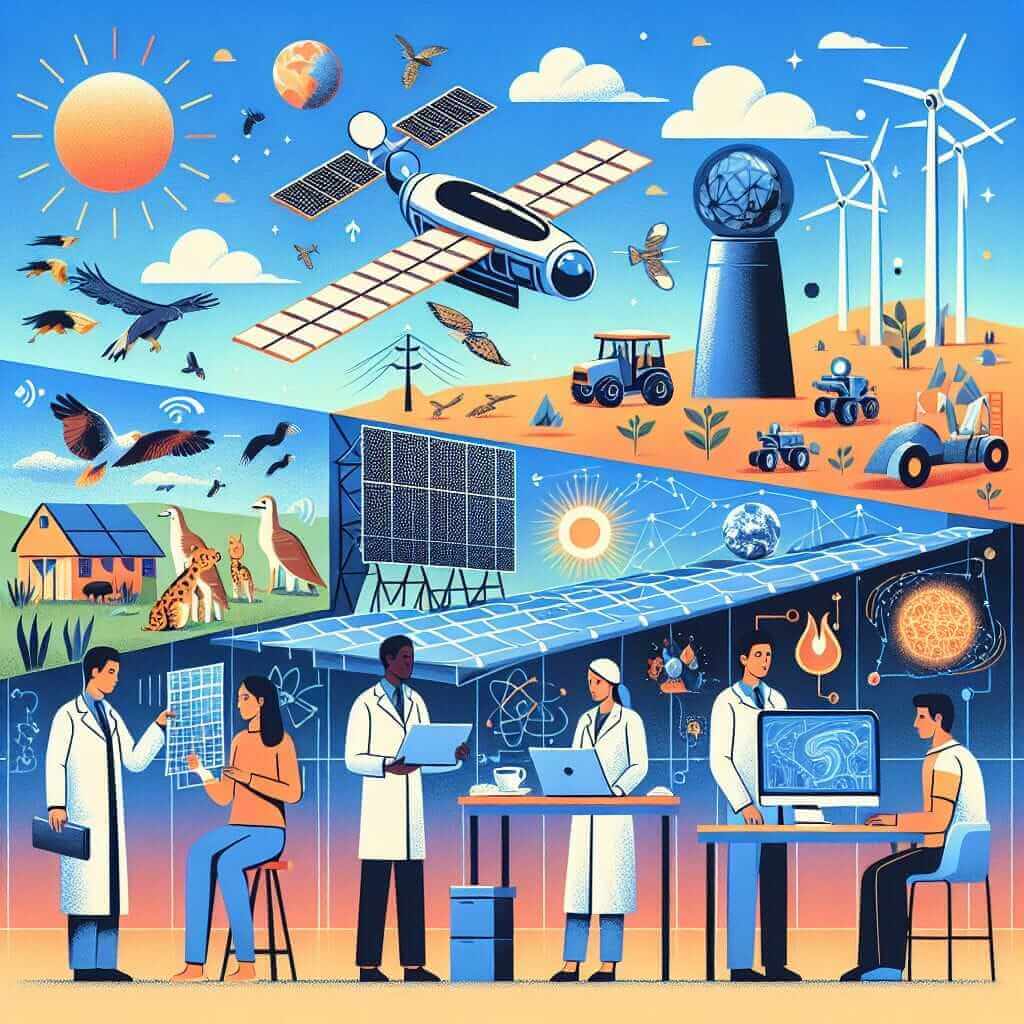In the IELTS Reading test, one of the key skills you need to develop is the ability to understand and interpret the various formats of questions related to the given passages. Today’s topic focuses on the timely and significant issue of how artificial intelligence (AI) is harnessed to combat climate change. This is not only relevant but also likely to appear in IELTS Reading passages given the increasing attention on technology and environmental sustainability.
Historically, topics related to climate change and technology have frequently appeared in IELTS exams. Given the rapid advancements and increased focus on technology’s role in addressing global challenges, it’s plausible to see such topics in upcoming tests. This sample reading passage and questions will help you prepare for the real exam.
Reading Passage: How AI is Being Used to Combat Climate Change
Passage
Artificial Intelligence (AI) has emerged as a powerful tool in the global effort to combat climate change. By leveraging large datasets and sophisticated algorithms, AI can analyze and predict environmental patterns more accurately than traditional methods. This capability is crucial in devising strategies to mitigate the adverse effects of climate change.
One of the primary ways AI is being utilized is through predictive analytics. Machine learning models can forecast weather patterns, track deforestation, and predict sea-level rise. These predictions are vital for preparing and responding to natural disasters, thereby minimizing damage and saving lives. For example, IBM’s Green Horizon Project uses AI to provide detailed air pollution forecasts, allowing governments and businesses to take proactive measures.
Furthermore, AI assists in optimizing energy use and efficiency. Smart grids powered by AI can balance supply and demand in real time, reducing energy waste and integrating renewable sources more effectively. Google’s DeepMind has applied its AI system to manage data centers, leading to a 15% reduction in power consumption. These advancements not only help lower greenhouse gas emissions but also promote sustainable resource management.
AI is also integral in conservation efforts. By analyzing satellite imagery and environmental data, AI can monitor wildlife populations and detect illegal activities like poaching and logging. This real-time monitoring enables quicker responses and enhances the protection of biodiversity.
Despite these benefits, the widespread adoption of AI faces several challenges. Data privacy concerns and the need for substantial computational resources are significant barriers. Moreover, there is the risk of algorithmic biases which can lead to inequitable outcomes.
In conclusion, AI holds great promise in the fight against climate change. Its ability to analyze vast amounts of data and provide actionable insights makes it an invaluable asset. However, addressing the associated challenges is crucial to fully realize its potential.
Questions
Multiple Choice
-
According to the passage, which of the following is a primary use of AI in combating climate change?
- A. Entertainment
- B. Predictive analytics
- C. Financial trading
- D. Marketing strategies
-
What is one of the results of applying Google’s DeepMind AI system to manage data centers?
- A. Increased greenhouse gas emissions
- B. Higher power consumption
- C. A 15% reduction in power consumption
- D. Inefficient energy use
True/False/Not Given
-
The passage states that AI can help track deforestation.
True / False / Not Given -
AI has completely eliminated poaching activities worldwide.
True / False / Not Given
Matching Information
-
Match the use of AI with the corresponding example given in the passage:
- A. Predictive analytics
- B. Energy optimization
- C. Conservation efforts
i) IBM’s Green Horizon Project
ii) Google’s DeepMind
iii) Monitoring wildlife populations
Sentence Completion
- Data privacy concerns and the substantial computational resources needed are mentioned as __ to the widespread adoption of AI in fighting climate change.
Answers and Explanations
-
B. Predictive analytics
Explanation: The passage highlights predictive analytics as one of the primary uses of AI in combating climate change, specifically for forecasting weather patterns and predicting sea-level rise. -
C. A 15% reduction in power consumption
Explanation: The text states that AI has helped Google’s data centers reduce power consumption by 15%. -
True
Explanation: The passage explicitly mentions that machine learning models can track deforestation. -
False
Explanation: The passage indicates AI helps monitor illegal activities like poaching but does not state that poaching has been completely eliminated. -
A – i, B – ii, C – iii
Explanation:
A. Predictive analytics – IBM’s Green Horizon Project
B. Energy optimization – Google’s DeepMind
C. Conservation efforts – Monitoring wildlife populations -
challenges
Explanation: The passage mentions that data privacy concerns and the need for substantial computational resources are challenges to the widespread adoption of AI.

Common Mistakes and Tips
-
Mistake: Overlooking keywords that define the type of information required for True/False/Not Given questions.
Tip: Always cross-reference the statement with the passage to ensure the answer is accurate. -
Mistake: Misinterpreting the context of keywords in sentence completion.
Tip: Pay attention to the surrounding text to understand the context fully.
Vocabulary
- Predictive Analytics (noun): /prɪˈdɪk.tɪv əˈnæl.ɪ.tɪks/ – Techniques used to analyze current and historical facts to make predictions about future events.
- Deforestation (noun): /ˌdiː.fɒr.ɪˈsteɪ.ʃən/ – The action of clearing a wide area of trees.
- Computational Resources (noun): /ˌkɒm.pjʊˈteɪ.ʃən.əl rɪˈzɔː.sɪz/ – The computational power, storage, and infrastructure necessary to process data and perform complex calculations.
Grammar Point
- Relative Clauses: These provide additional information about a noun without starting a new sentence. For example, “AI can monitor wildlife populations, which enhances conservation efforts.”
Advice for High Reading Scores
- Practice Regularly: Consistency is key. Set aside time daily to practice reading and answering different types of questions.
- Enhance Vocabulary: Build a strong vocabulary by reading extensively on diverse topics.
- Focus on Keywords: Identify and focus on keywords in both the questions and the passage.
- Manage Your Time: Practice under timed conditions to improve your speed and efficiency.
By thoroughly understanding the strategies needed to tackle reading passages and questions, and consistently applying these techniques, you can significantly improve your performance in the IELTS Reading test.